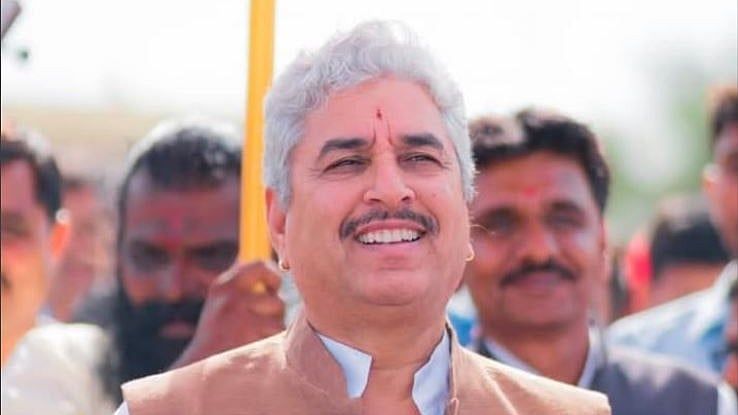
Mumbai: A highly respected figure in the Vanjari community, Namdev Shastri, has offered his support to the family of slain sarpanch Santosh Deshmukh. This support comes just days after Shastri defended state minister Dhananjay Munde, asserting that he was being unjustly targeted.
The murder of Deshmukh, the head of Massajog village last December, has triggered a political storm in Maharashtra as Valmik Karad, one of the accused in a related extortion case, is a close aide of NCP MLA Dhananjay Munde.
The Deshmukh family visited Bhagwan Gad on Sunday, where they met Namdev Shastri and presented evidence against the accused. After the meeting, Shastri expressed his full support for them.
“We will not forgive the accused. We will not shield them. From the seat of Bhagwangad, I give you my word that they will receive no support here. Bhagwangad stands firmly with Santosh Deshmukh and his family. There is no need for concern,” Shastri assured the family members of Deshmukh.
Dhananjay Deshmukh, brother of the slain sarpanch, told the reporters that the murder should not be viewed through the lens of caste.
“Bhagwangad will always stand with our family. We have shown the true background of the accused and the cases against them. My brother was associated with Bhagwangad,” he said.
He claimed that the Deshmukh family never engaged in caste-based politics and that his brother lost his life while trying to protect a Dalit man.
“We have no criminal background. Santosh was a sarpanch for 15 years. The accused have multiple cases against them. Their mindset needs to be examined. Those supporting the accused are the ones bringing in caste narratives,” Dhananjay claimed.
The Santosh Deshmukh murder case has been a major issue in the state for the past month and a half. Since the main accused Karad has business ties with Munde, there have been calls for his resignation.
Last week, Munde visited Bhagwangad, where Namdev Shastri said that Munde was being unfairly targeted. Shastri defended Munde against corruption allegations, arguing that the entire controversy stemmed from a localised village dispute that had been exaggerated. He condemned the ongoing media trial, stating that it was detrimental to all communities.